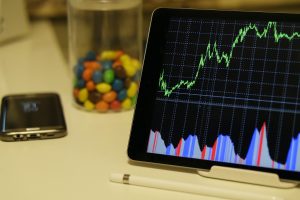What’s a Recession Anyway?

You’ve likely caught the term “recession” thrown around on the news in the last several months. But, do you know the exact definition of a recession? How is it different from a depression? How long do recessions last?
So many questions — and we’ve got answers! Here’s all you need to know about recessions.
What is a recession?
A recession is a widespread economic decline in a designated region lasting several months or more. In a recession, the gross domestic product (GDP), or the total value of all goods and services produced in the region, decreases for two consecutive quarters. In most recessions, the GDP growth will slow for several quarters before it turns negative.
What’s the difference between a recession and a depression?
A depression has similar criteria as a recession, but is more severe. For example, in both a recession and a depression, the unemployment rate rises; however, during the Great Recession of 2008, unemployment peaked at 10%, while during the Great Depression, unemployment levels soared to 25%.
Depressions also last longer than recessions. The Great Depression officially lasted four years, but continued to impact the economy for more than a decade. In contrast, recessions last only about 11 months, according to data from the National Bureau of Economic Research (NBER) .
Why the COVID-19 recession is unlike any other
The COVID-19 recession, also known as the coronavirus recession, is unique because it was not sparked by any inherent problem within the economy.
Another anomaly of the coronavirus recession is the super-healthy state of the economy before it hit. In February, unemployment levels were at a 50-year low, stock markets were at a record high and the U.S. economy had enjoyed its longest period of growth in history.
The unusual triggers and the explosive start of the current recession may be good news for its end. An April Reuters poll found that nearly half of 45 economists believed the U.S. recovery would be U-shaped; meaning relatively quick.
How will this recession affect me?
The coronavirus recession can impact the average consumer in multiple ways.
First, many are struggling with sudden unemployment or will be facing joblessness in the coming months. The most recent data from the Bureau of Labor Statistics show the unemployment rate at 10.2%.
Secondly, the economic uncertainty has triggered record-low interest rates, which in turn sparked a rush to refinance. If you are currently paying high interest rates on a long-term loan, you may want to consider refinancing for a lower monthly payment. Explore our current rates by clicking here.
Finally, investments in stocks, bonds and real estate may lose value during a recession.
If you are experiencing financial difficulties of any kind, feel free to reach out to us to see how we can help.

